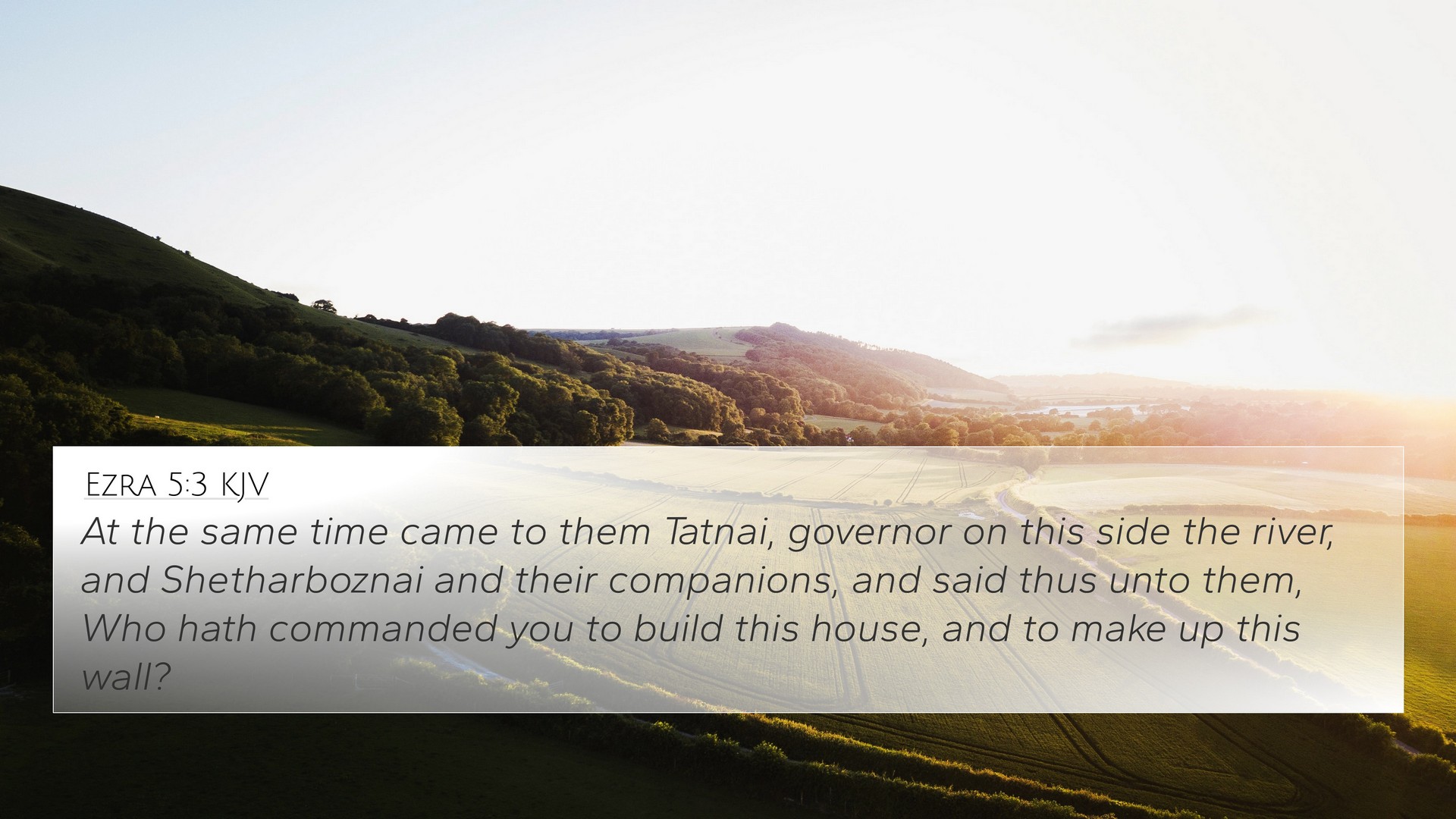Old Testament
Genesis Exodus Leviticus Numbers Deuteronomy Joshua Judges Ruth 1 Samuel 2 Samuel 1 Kings 2 Kings 1 Chronicles 2 Chronicles Ezra Nehemiah Esther Job Psalms Proverbs Ecclesiastes Song of Solomon Isaiah Jeremiah Lamentations Ezekiel Daniel Hosea Joel Amos Obadiah Jonah Micah Nahum Habakkuk Zephaniah Haggai Zechariah MalachiEzra 5:3 Similar Verses
Ezra 5:3 Cross References
At the same time came to them Tatnai, governor on this side the river, and Shetharboznai and their companions, and said thus unto them, Who hath commanded you to build this house, and to make up this wall?
Uncover the Rich Themes and Topics of This Bible Verse
Listed below are the Bible themes associated with Ezra 5:3. We invite you to explore each theme to gain deeper insights into the Scriptures.
Ezra 5:3 Cross Reference Verses
This section features a detailed cross-reference designed to enrich your understanding of the Scriptures. Below, you will find carefully selected verses that echo the themes and teachings related to Ezra 5:3 KJV. Click on any image to explore detailed analyses of related Bible verses and uncover deeper theological insights.
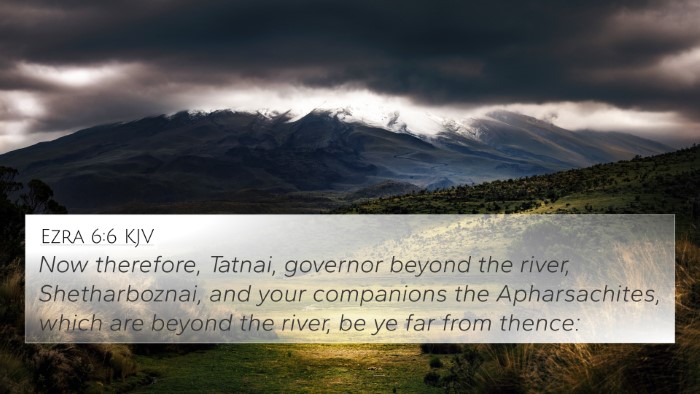
Ezra 6:6 (KJV) »
Now therefore, Tatnai, governor beyond the river, Shetharboznai, and your companions the Apharsachites, which are beyond the river, be ye far from thence:
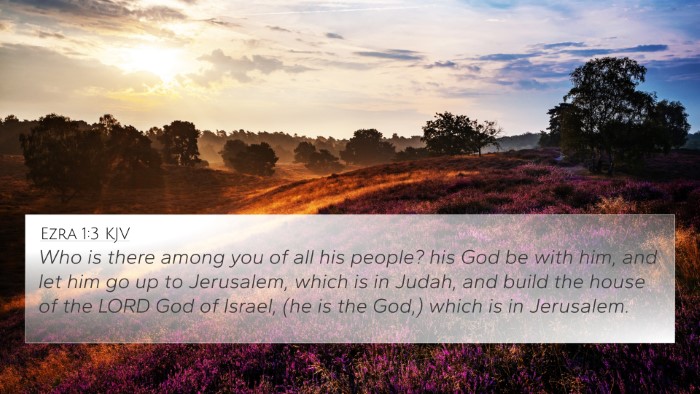
Ezra 1:3 (KJV) »
Who is there among you of all his people? his God be with him, and let him go up to Jerusalem, which is in Judah, and build the house of the LORD God of Israel, (he is the God,) which is in Jerusalem.
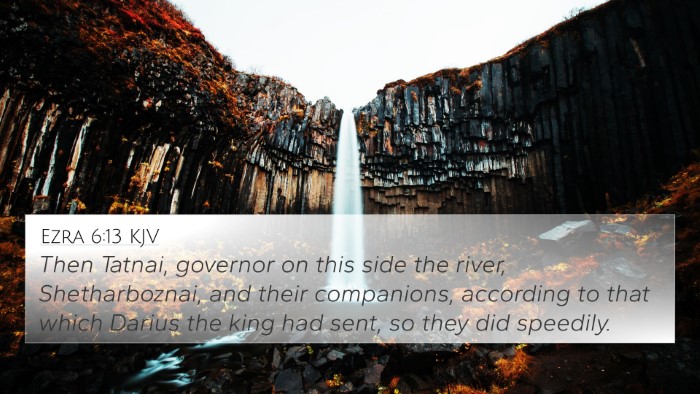
Ezra 6:13 (KJV) »
Then Tatnai, governor on this side the river, Shetharboznai, and their companions, according to that which Darius the king had sent, so they did speedily.
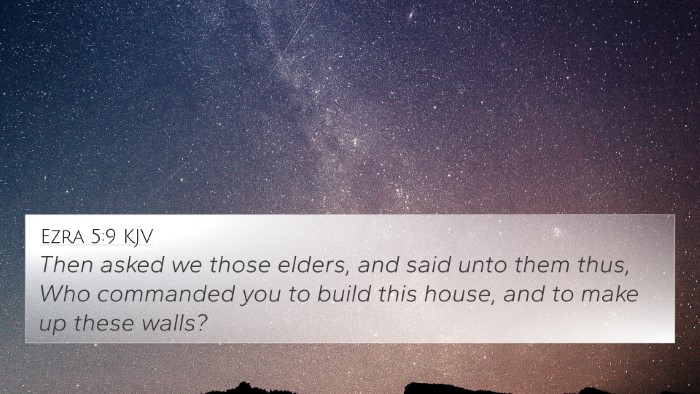
Ezra 5:9 (KJV) »
Then asked we those elders, and said unto them thus, Who commanded you to build this house, and to make up these walls?
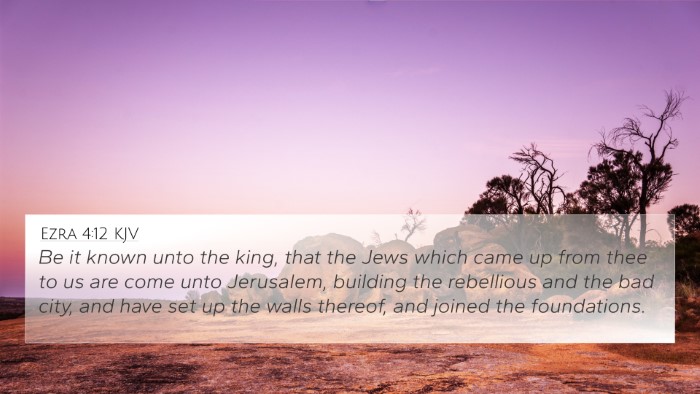
Ezra 4:12 (KJV) »
Be it known unto the king, that the Jews which came up from thee to us are come unto Jerusalem, building the rebellious and the bad city, and have set up the walls thereof, and joined the foundations.

Matthew 21:23 (KJV) »
And when he was come into the temple, the chief priests and the elders of the people came unto him as he was teaching, and said, By what authority doest thou these things? and who gave thee this authority?
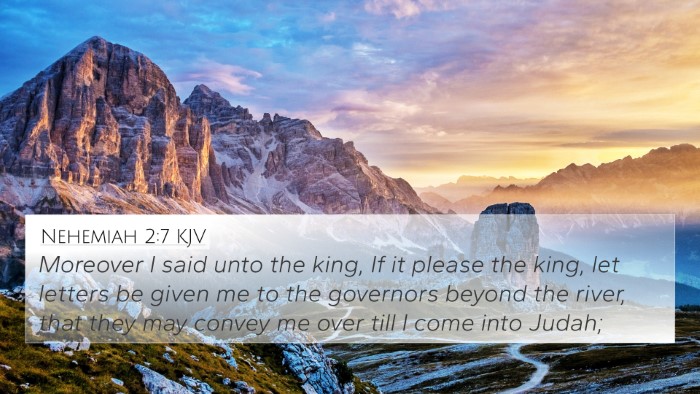
Nehemiah 2:7 (KJV) »
Moreover I said unto the king, If it please the king, let letters be given me to the governors beyond the river, that they may convey me over till I come into Judah;
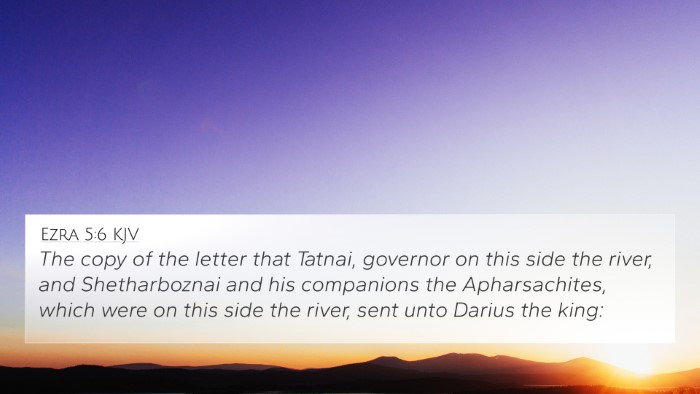
Ezra 5:6 (KJV) »
The copy of the letter that Tatnai, governor on this side the river, and Shetharboznai and his companions the Apharsachites, which were on this side the river, sent unto Darius the king:
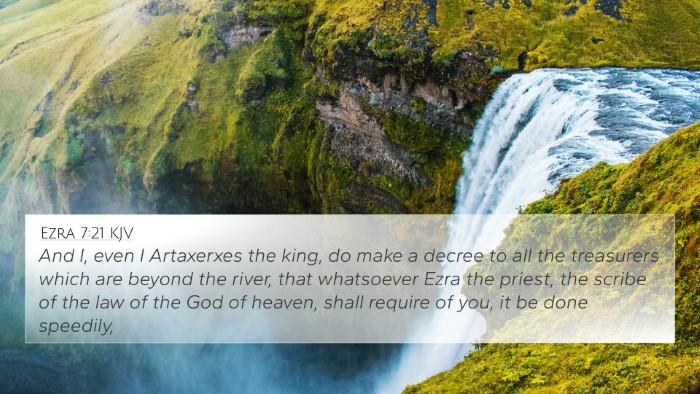
Ezra 7:21 (KJV) »
And I, even I Artaxerxes the king, do make a decree to all the treasurers which are beyond the river, that whatsoever Ezra the priest, the scribe of the law of the God of heaven, shall require of you, it be done speedily,
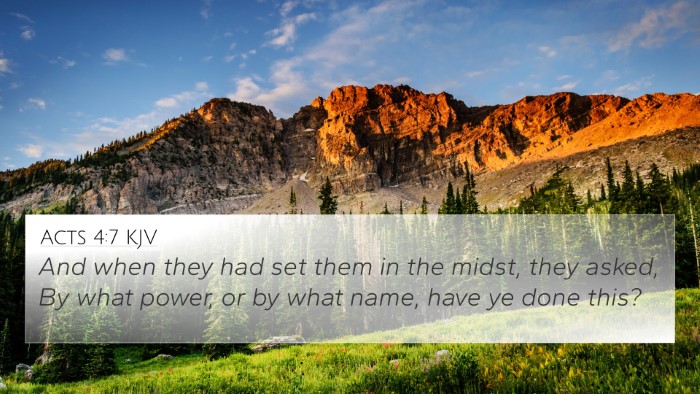
Acts 4:7 (KJV) »
And when they had set them in the midst, they asked, By what power, or by what name, have ye done this?
Ezra 5:3 Verse Analysis and Similar Verses
Understanding Ezra 5:3
Verse: Ezra 5:3 - "At the same time came to them Tattenai, governor on this side the river, and Shethar-bozenai, and their companions, and said thus unto them, Who hath commanded you to build this house, and to make up this wall?"
Overview
The verse captures a moment of challenge faced by the Jews during the rebuilding of the temple in Jerusalem. The inquiry from Tattenai reflects the opposition and scrutiny that the Jewish exiles encountered while working on a significant religious endeavor. This reestablishes the theme of divine mission versus earthly authority, mirroring broader themes throughout Scripture.
Commentary Insights
- Matthew Henry: Henry emphasizes the significance of the question posed by Tattenai. He notes that it reflects the tensions between God’s purposes and governmental authority. Henry illustrates that the rebuilding of the temple was not merely a civic project but a divine undertaking sanctioned by God’s earlier promises.
- Albert Barnes: Barnes points out that Tattenai’s challenge reveals the constant opposition faced by the Jews. He indicates that such questions were common when challenging the valid authority of the work done. Barnes encourages understanding this opposition as a prelude to the miraculous support the Jews received from God.
- Adam Clarke: Clarke elaborates on the roles of Tattenai and his companions, suggesting they were instruments of divine testing. He implies their inquiry served to establish the legitimacy of the Jews’ actions, reinforcing the necessity of divine assistance in all endeavors faithful to God’s will.
Thematic Connections
This verse connects to several overarching themes present in the Bible:
- Divine Authority vs. Human Authority: The confrontation raises questions of who holds ultimate authority in matters of faith and religious practice.
- Resistance to God’s Work: Tattenai’s inquiry exemplifies the kind of resistance that God’s people often experience when undertaking significant spiritual initiatives.
- God’s Promises and Protection: The verse serves as a reminder of God’s promise to protect and sustain His people in the face of challenges.
Bible Verse Cross-References
For a deeper understanding of Ezra 5:3, it's beneficial to explore various cross-references that illustrate similar themes and contexts:
- Nehemiah 2:1-10: This passage discusses Nehemiah’s mission to rebuild the wall of Jerusalem and the opposition he faced.
- Zechariah 4:6: This verse emphasizes that the work of rebuilding was not by might or power, but by God’s Spirit.
- Acts 4:18-20: The apostles faced similar scrutiny and questioning about their authority to preach, paralleling the situation in Ezra.
- Matthew 28:18-20: Jesus asserts all authority in heaven and earth, providing a broader context for understanding divine versus human authority.
- Isaiah 44:28-45:1: God’s declaration regarding Cyrus aligns with the theme of God using secular leaders to accomplish His purposes.
- Psalms 127:1: The significance of God's sovereign hand in building reflects the reality that without God's blessing, efforts are futile.
- Romans 13:1-7: This passage elaborates on the role of governing authorities and their relationship to God’s divine order, correlating with Ezra's context.
Inter-Biblical Dialogue
Ezra 5:3 engages in inter-Biblical dialogue by connecting the experience of the Jewish exiles with broader lessons found throughout both the Old and New Testaments. The experiences of God's people are echoed in later scripture as they encounter challenges, indicating a continuous thread of divine providence amid adversity.
Conclusion
Ezra 5:3 serves as a compelling reminder of the conflicts faced by God’s people when striving to fulfill divine mandates. The insights from various commentators, combined with cross-references and thematic connections, provide a profound understanding of this pivotal moment in biblical history. The ongoing dialogue between scriptures highlights the consistency of God's plan and presence through challenging times.
